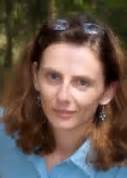Subject: Conference Berlin
| CFP: Gender-Power-Eastern Europe – Berlin | 10.20.2016, Berlin |
| Osteuropa-Institut, Freie Universität Berlin | |
Deadline to submit Proposal : 10.20.2016
Call for papers for an international interdisciplinary conference, June 20-23, 2017 in Berlin
Gender – Power – Eastern Europe Changing Concepts of Femininities and Masculinities and Power Relations
The rise of right wing populist parties and conservative movements in Eastern Europe , from Poland to Hungary and Russia, has dramatically affected discourses about and concepts of gender. The “turn to the right” has also ushered substantial shifts in policies concerning women’s rights as well as gender studies as an academic and educational project. Arguably, in some cases right wing political victory was facilitated by usage of anti-gender equality rhetoric (anti-genderism;anti-gender mobilization). These worrisome developments demand exploration in broader contexts. Yet, the situation in East European societies is quite diverse if scrutinized from a gender perspective.After the transformation process of the early 1990s, increasing participation and liberation of women in public spheres can be observed in various countries. Other countries like Poland and Hungary experienced setbacks at several points of their history and in diverse spheres of society. There, traditional gender roles re-entered the discourse and practice. In other countries again, new problems arose with political and territorial tensions. In Ukraine, for example, spaces of violence and war are forcing us to monitor gender roles, women’s rights, and participation from a new perspective. In Russia, Ukraine and Belarus strong anti-authoritarian protests are renegotiating gender roles and concepts in multiple ways , and creating new potentials for feminist and LGBTQ movements. The role of gender within power relations of new political and social constellations, the participation of women in politics, economics and warfare, as well as spaces of violence need to be scrutinized and explored. The Institute of Eastern European Studies at the Freie Universität in Berlin is inviting scholars from different disciplines to debate these questions in an interdisciplinary conference entitled”Gender – Power- Eastern Europe” to be held in June 2017 in Berlin. Our aim is to open up a space for discussions not only about recent developments, but also to investigate the cultural, sociological and historical patterns of these developments in the longue durée. Above all, we focus on the agency of women and thus we move away from describing the status of women solely as an objects of discrimination in economic and societal structures. Similarly important are the new roles and models of masculinities exercised by men in Central and Eastern Europe, which are being shaped within and outside of family. Finally, we intend to explore how power relations are negotiated in diverse societies and what role gender plays therein. Three thematic panels are planned: 1) The new conservativism and changing concepts of masculinity and femininity 2) Gender and participation in politics and economics 3) Gender, sexuality, and violence
Panel descriptions:
1) This panel will explore the gender dimension of the new political configuration – right wing populism. Concepts of masculinity and femininity and their historical, political, sociological and cultural heritage and legacies will be at the focus of attention. Papers focusing on the interconnectedness of gender concepts and national discourses are welcome. We are intending to debate mechanisms of inclusion, exclusion and instrumentalization of certain images and concepts of femininity and masculinity and their re-figurations in contemporary East European discourses. Both theoretical and empirical papers are invited for this panel.
2) Participation of women will be the key issue in this panel. We welcome papers addressing political participation of women in Eastern Europe, especially formal and substantive representation in parliament,official institutions or the role of political quotas. Economic factors are vital to understanding how gender roles and gender relations of power are constructed. Powerful economic actors can influence not only discourses, but also economic realities of men, women and families. In2009 Nancy Fraser’s critique of the neoliberal market policies and the consequences of financial crisis brought about an important debate on the role of women’s social movements in neoliberal landscapes. Numerous scholars have shown the profound effects of neoliberal policies on the socio-economic position of women in Eastern Europe during and after the transformation. On the one hand, economic policies contribute to the rise of new gender regimes and change the nature of activism. On the other hand, also pro-family and social policies are capable of creating new economic realities.
3) This panel addresses the power relations in both public and private spheres, where gender is discoursively produced and reproduced, but also where violence is perpetuated. Several countries in the Balkan region and post-Soviet republics serve as source countries for traffickers in women, which has been recognized by Human Rights Watch as one of the most severe examples of human rights violations in Eastern Europe. Other types of relations between gender, power and violence can be observed in the case of Euromaidan protests in Ukraine, where women actively participated in military formations. Additional topics, which are welcome in this panel, might include: domestic violence and the fight against it, gender in right-wing violence, gender and militarization,alternations in abortion laws, changing landscape of LGBTQ movements in Eastern Europe.
Scholars from a wide range of disciplines are invited to participate.Comparative papers are very welcome in order to reveal intertwined processes occurring in different East European countries.
Please send your abstract of around 500 words and a CV to the following email address until 20th of October 2016: [email protected].
The organizing committee:
Prof. Katharina Bluhm, Dean of the Institute of Eastern European Studies
Prof. Gertrud Pickhan, Head of History Department at the Institute of Eastern European Studies
Dr. Justyna Stypinska, Department of Sociology at the Institute of Eastern European Studies
Agnieszka Wierzcholska, Department of History at the Institute ofEastern European Studies
Dr. hab. Agnieszka Graff, American Studies Centre, University of Warsaw ————————————————————————Agnieszka Wierzcholska Osteuropa-Institut, Freie Universität Berlin, Garystr. 55, 14195 Berlin +4930-83853181 [email protected]
URL zur Zitation dieses Beitrages<http://hsozkult.geschichte.hu-berlin.de/termine/id=32006> ————————————————————————H-


